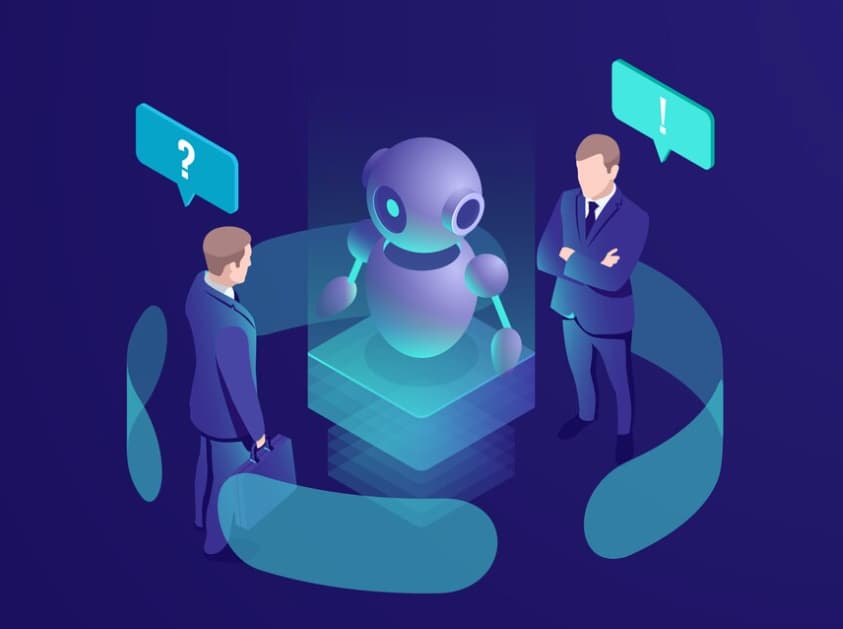In today’s fast-paced digital era, businesses are constantly seeking innovative ways to enhance customer support services. One such revolutionary technology making waves in the customer service landscape is Artificial Intelligence (AI) chatbots.
AI Chatbots for Customer Support

These intelligent virtual assistants are changing the game by providing instant, efficient, and personalized support to users across various industries.
Benefits of AI Chatbots
- 24/7 Availability
AI chatbots offer round-the-clock support, ensuring customers get assistance whenever they need it. This availability contributes to improved customer satisfaction and loyalty.
- Quick Response Time
With the ability to process information swiftly, AI chatbots provide rapid responses to customer queries, minimizing waiting time and increasing overall efficiency.
- Cost-Effective
Implementing AI chatbots can significantly reduce operational costs associated with customer support. They handle multiple inquiries simultaneously, eliminating the need for a large support team.
- Personalized Customer Interaction
AI chatbots use data analytics to understand individual customer preferences, delivering tailored interactions that enhance the overall user experience.
Implementation in Customer Support
- Real-Time Issue Resolution
AI chatbots excel in addressing customer concerns in real-time, resolving issues efficiently, and preventing potential escalations.
- Integration with Existing Systems
These chatbots seamlessly integrate with existing customer support systems, ensuring a smooth transition without disrupting ongoing operations.
- Multilingual Support
Global businesses benefit from AI chatbots that offer multilingual capabilities, breaking down language barriers and expanding their customer reach.
- Handling Complex Queries
AI chatbots utilize advanced algorithms to comprehend and respond to complex queries, providing solutions that go beyond simple FAQs.
Enhancing User Experience
- Natural Language Processing (NLP)
The incorporation of NLP enables AI chatbots to understand and respond to natural language, making interactions more human-like and intuitive.
- Predictive Analytics
AI chatbots analyze user data to predict future needs, offering proactive assistance and enhancing overall customer satisfaction.
- Continuous Learning and Improvement
Through machine learning algorithms, AI chatbots continuously learn from interactions, adapting and improving their responses over time.
Challenges and Solutions
- Handling Sensitive Information
Stringent security measures are implemented to ensure AI chatbots handle sensitive information responsibly, addressing privacy concerns.
- Avoiding Misinterpretations
Ongoing training and updates minimize the risk of misinterpretations, ensuring an accurate understanding of user queries.
- Balancing Automation and Human Touch
A strategic balance is maintained between automation and human interaction to provide a personalized and empathetic customer experience.
- Regular Updates and Maintenance
Frequent updates and maintenance checks are conducted to address any issues, ensuring optimal performance and reliability.
Industries Leveraging AI Chatbots
- E-commerce
E-commerce platforms use AI chatbots to assist customers in product selection, order tracking, and issue resolution.
- Healthcare
In the healthcare sector, AI chatbots aid in appointment scheduling, medication reminders, and providing general health information.
- Finance
Financial institutions deploy AI chatbots for tasks such as account inquiries, transaction details, and financial advice.
- Travel and Hospitality
AI chatbots enhance the travel experience by providing information on bookings, travel itineraries, and local recommendations.
Future Trends
- Advancements in AI Technology
Ongoing advancements in AI technology will lead to even more sophisticated chatbots capable of handling complex tasks and understanding nuanced queries.
- Integration with Voice Assistants
The integration of AI chatbots with voice assistants will further enhance user convenience, allowing for hands-free interactions.
- Enhanced Emotional Intelligence
Future AI chatbots are expected to develop enhanced emotional intelligence, and better understanding and responding to users’ emotions.
Case Studies
- Successful Implementations
Several businesses have witnessed increased customer satisfaction and operational efficiency after implementing AI chatbots in their customer support processes.
- Impact on Customer Satisfaction
Case studies highlight the positive impact of AI chatbots on customer satisfaction, showcasing improved response times and personalized interactions.
How to Choose the Right AI Chatbot?
- Customization Options
Businesses should opt for AI chatbots that offer customization options to align with their unique brand personality and customer expectations.
- Scalability
Choosing a scalable solution ensures the AI chatbot can grow and adapt to increasing customer demands without compromising performance.
- Integration Capabilities
Compatibility with existing systems is crucial for seamless integration and efficient collaboration within the organization.
- Security Measures
Prioritize AI chatbots with robust security measures to safeguard customer data and maintain trust.
Steps to Implement AI Chatbots
- Assessing Customer Needs
Understanding specific customer needs and pain points is crucial for tailoring the AI chatbot to address these concerns effectively.
- Choosing the Right Platform
Selecting a reliable and user-friendly platform is essential for successful AI chatbot implementation and management.
- Training the Chatbot
Thorough training ensures the chatbot understands the brand’s tone, context, and specific industry jargon.
- Monitoring and Improving Performance
Regularly monitoring performance metrics allows businesses to identify areas of improvement and enhance the chatbot’s effectiveness.
Measuring Success
- Customer Feedback
Gathering customer feedback provides valuable insights into the chatbot’s performance and helps identify areas for improvement.
- Reduction in Response Time
A successful AI chatbot implementation should lead to a noticeable reduction in response time, contributing to overall customer satisfaction.
- Cost Savings
Efficient AI chatbots can lead to cost savings, particularly in terms of personnel and operational expenses.
Common Myths About AI Chatbots
- Job Replacement Concerns
Contrary to fears of job replacement, AI chatbots often complement human roles, handling routine tasks and allowing human agents to focus on more complex issues.
- Lack of Personalization
AI chatbots, when properly configured, offer highly personalized interactions based on user preferences and historical data.
- Limited Understanding
Advancements in NLP and machine learning enable AI chatbots to understand and respond to a wide range of user queries, minimizing limitations.
Overcoming Resistance to Change
- Employee Training
Providing comprehensive training to employees ensures a smooth transition and acceptance of AI chatbot integration.
- Communicating Benefits
Clear communication about the benefits of AI chatbots, such as improved efficiency and enhanced customer experience, helps overcome resistance.
- Gradual Implementation Approach
Implementing AI chatbots gradually allows employees and customers to adapt, reducing the impact of sudden changes.
Ethical Considerations
- Transparency in AI
Ensuring transparency in AI operations builds trust and addresses concerns related to data usage and decision-making processes.
- Ensuring Fairness
Implementing ethical guidelines in AI chatbot development prevents biases and ensures fair treatment of all users.
- Safeguarding User Privacy
Robust privacy measures are essential to protect user data and comply with regulations, enhancing overall ethical practices.
FAQs
- Can AI chatbots completely replace human customer support agents?
AI chatbots complement human agents by handling routine tasks, allowing humans to focus on more complex issues. They don’t replace but enhance customer support.
- How secure is customer information handled by AI chatbots?
AI chatbots implement robust security measures to ensure the safe handling of customer information, addressing privacy concerns.
- What industries benefit the most from implementing AI chatbots?
E-commerce, healthcare, finance, and travel are among the industries benefiting significantly from AI chatbots in enhancing customer support.
- How do AI chatbots contribute to cost savings for businesses?
AI chatbots reduce operational costs by handling multiple inquiries simultaneously, eliminating the need for a large support team.
- Can AI chatbots understand and respond to complex user queries?
Yes, AI chatbots utilize advanced algorithms, including NLP and machine learning, to understand and respond to complex queries, providing effective solutions.
More Related Guides:
- The Role of AI and Machine Learning in AEC Software
- How To Use AI Trading Bots for Better Forex Trading
Conclusion
In conclusion, AI chatbots have emerged as invaluable assets in revolutionizing customer support.
Their ability to provide 24/7 assistance, quick response times, and personalized interactions position them as key players in enhancing user experience across various industries.
While challenges exist, ongoing advancements and ethical considerations pave the way for a future where AI chatbots play an even more significant role in customer service.



